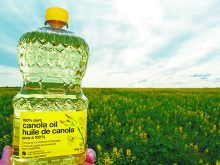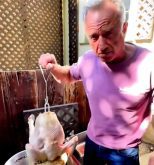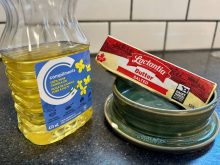SASKATOON — The anti-seed oil crowd just got a powerful new ally.
Robert F. Kennedy Jr. was recently confirmed as head of the U.S. Department of Health and Human Services.
Kennedy has long railed against the product, which is made from crushing oilseeds such as canola or soybeans.
Read Also

Huge Black Sea flax crop to provide stiff competition
Russia and Kazakhstan harvested huge flax crops and will be providing stiff competition in China and the EU.
“Seed oils are one of the most unhealthy ingredients that we have in foods and the reason they’re in the foods is that they’re heavily subsidized,” he said in an October 2024 interview on Fox & Friends.
Kennedy claims the oils are associated with a host of serious illnesses including “body-wide inflammation.”
“It’s one of the worst things you can eat, and it’s almost impossible to avoid. If you eat any processed foods, you’re going to be eating seed oil.”
Part of Kennedy’s Make America Healthy Again strategy is to convince Americans to cook foods in animal fats like beef tallow rather than seed oils.
Kennedy’s stance is in lockstep with many social media health influencers such as Joe Rogan, who often evangelizes against “the hateful eight,” which comprises sunflower, soy, cottonseed, safflower, corn, rice bran, grapeseed and canola oil.
The Canola Council of Canada monitors the seed oil rhetoric.
“Definitely there has been some increased activity over a period of the last several months,” said council president Chris Davison.
The debate is primarily occurring on social media rather than the mainstream media, but he doesn’t believe it is putting much of a dent in global demand for canola oil.
“I have nothing to indicate that that is the case at this time,” he said.
IndexBox recently published a market analysis report indicating there is still tremendous growth potential for canola oil.
It is forecasting that rapeseed/canola oil demand will rise by a compound annual growth rate of 2.9 per cent over the next six years, reaching 32 million tonnes by the end of 2030.
The value of that global demand will rise by an average of 4.7 per cent per year, amounting to US$56.7 billion by the end of 2030.
But that doesn’t mean the sector can be complacent. Davison said there are times when the council and other groups need to step in and set the record straight by addressing misinformation.
That can prove difficult when the misinformation is being spread by the likes of Kennedy, who has 5.4 million followers on the X social media platform, and Rogan, who has 15 million.
“We are in an age of misinformation, an age of influencers and that kind of thing,” said Davison.
That is why commodity groups are enlisting the help of consumer-facing health professionals, academics, researchers and others to talk about the science.
In the case of canola oil, they talk about how it contains the least amount of saturated fat of any of the common edible oils and how it was awarded a qualified health claim by the U.S. Food & Drug Administration because of its ability to reduce the risk of coronary heart disease.
“There is lots of information that is backed by decades of research that has been well recognized by different bodies, authorities and regulators in different places around the world,” said Davison.
The goal is to provide information to consumers so that they can take a “weighted evidence approach” when shopping for oils.
He said there needs to be a collective approach to disseminating that information because it is beyond the ability of one organization.
“In this day and age, you have to make information available in lots of different ways and allow people to access it where, how and when they want to do that,” said Davison.


















